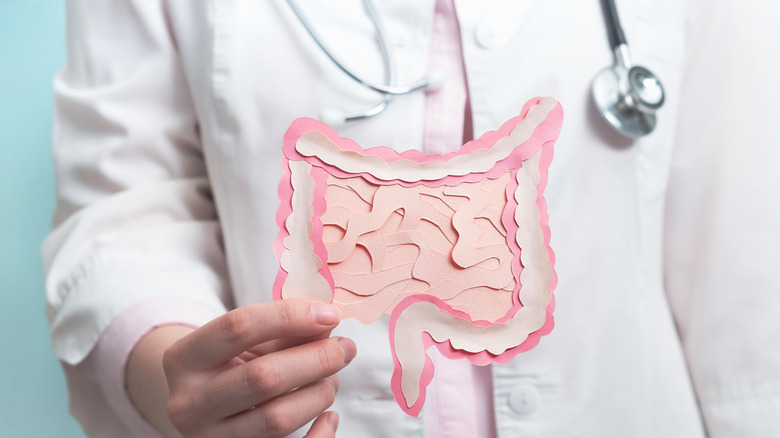Introduction
In recent years, medical research has increasingly recognized the vital connection between gut health and the immune system — particularly in women. The gut is not only responsible for digestion and nutrient absorption but also plays a central role in regulating the body’s immune responses. For women, hormonal fluctuations, lifestyle, and even pregnancy can significantly influence gut microbiota and immune function. This article explores how gut health affects immunity in women and what steps can be taken to optimize both.
Understanding the Gut-Immune System Connection
What Is Gut Health?
Gut health refers to the balance and function of bacteria and other microorganisms living in the digestive tract, collectively called the gut microbiome. A healthy gut microbiome supports digestion, vitamin synthesis, hormone regulation, and immune responses.
Role of the Gut in Immunity
- About 70–80% of immune cells are located in the gut.
- Gut-associated lymphoid tissue (GALT) plays a vital role in immune surveillance.
- A balanced microbiome helps the immune system distinguish between harmful and beneficial organisms.
Why Women’s Gut Health Is Unique
Hormonal Influence
- Estrogen and progesterone influence gut motility and microbiota composition.
- Hormonal changes during menstruation, pregnancy, or menopause can disrupt gut balance, leading to bloating, constipation, or diarrhea.
Gut Health During Pregnancy
- A woman’s gut microbiome shifts naturally during pregnancy.
- This helps in immune modulation and supports fetal development.
- However, it may also increase susceptibility to gestational diabetes or infections if not balanced.
The Gut-Brain Axis in Women
- The gut communicates with the brain via the gut-brain axis, affecting mental health.
- Women are more prone to anxiety and depression, which can worsen gut issues and, in turn, weaken immunity.
How Poor Gut Health Weakens Immunity
Increased Inflammation
An imbalanced gut can lead to a leaky gut syndrome, where toxins pass into the bloodstream and trigger chronic inflammation, weakening immune defenses.
Reduced Nutrient Absorption
Poor gut health impairs the absorption of vitamins and minerals essential for immune function, like:
- Vitamin D
- Vitamin C
- Zinc
- Iron
Autoimmune Risk
Women are more likely than men to develop autoimmune diseases. Dysbiosis (an imbalance in gut bacteria) may trigger immune attacks on the body’s own tissues.
Ways to Improve Gut and Immune Health in Women
Probiotic and Prebiotic Intake
- Probiotics introduce good bacteria (found in yogurt, kefir, sauerkraut).
- Prebiotics feed these bacteria (found in garlic, onions, bananas, oats).
Balanced, Fiber-Rich Diet
- Eat diverse, plant-based foods.
- Avoid excessive sugar, alcohol, and processed foods.
Stay Hydrated
Water supports digestion and toxin elimination.
Manage Stress
Chronic stress disrupts the gut-brain axis, leading to inflammation and reduced immunity. Practice:
- Meditation
- Yoga
- Deep breathing
Regular Exercise
Moderate activity promotes healthy digestion and reduces inflammatory markers.
Hormonal Balance
- Consult healthcare providers to address menstrual irregularities or menopause symptoms.
- Consider natural hormone therapy or supplements when needed.
Signs of an Unhealthy Gut
- Constant bloating or gas
- Food intolerances
- Frequent colds or infections
- Skin conditions like acne or eczema
- Fatigue and mood swings
When to See a Doctor
Seek medical help if you experience:
- Persistent digestive issues
- Autoimmune symptoms
- Drastic weight changes
- Chronic fatigue or mood disorders
Functional medicine practitioners or gastroenterologists can offer tests like stool analysis or food sensitivity tests to assess gut health.
Conclusion
For women, maintaining a healthy gut is more than just avoiding indigestion — it’s a cornerstone of robust immune function, mental clarity, and hormonal balance. By understanding the intricate link between the gut and immune system, and implementing lifestyle changes to nurture the microbiome, women can take proactive steps toward long-term wellness.
FAQs
1. Can improving gut health really boost my immunity?
Yes. A healthy gut supports immune cell function and reduces inflammation, directly strengthening immunity.
2. How long does it take to restore gut health?
Improvements can be seen in 2–4 weeks with consistent diet and lifestyle changes, but full restoration may take months.
3. Should women take probiotics daily?
Daily probiotic intake is generally safe and beneficial, especially for women experiencing hormonal changes, but it’s best to consult a doctor for personalized recommendations.
4. Are gut issues more common in women than men?
Yes. Women are more prone to IBS, bloating, and hormonal gut symptoms due to their fluctuating hormones and stress sensitivity.
5. Can gut health affect skin health?
Absolutely. Poor gut health can cause skin issues like acne, eczema, and rosacea through systemic inflammation and toxin buildup.












